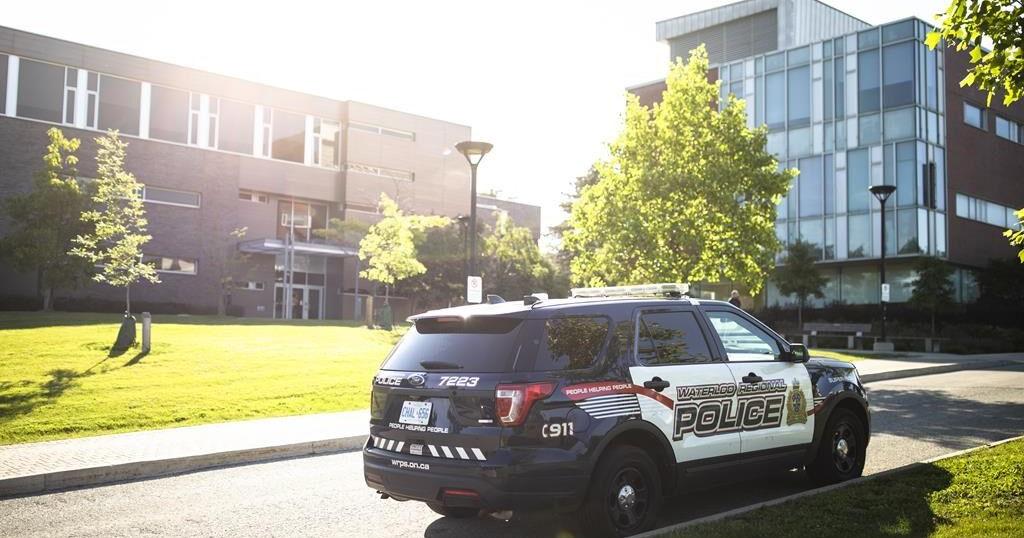KITCHENER, Ont. – The man who stabbed three people in a University of Waterloo gender studies class last year says he is remorseful and wants to apologize to anyone who was affected by his violent act.
Geovanny Villalba-Aleman addressed the court at the conclusion of his sentencing hearing today, saying his intention was not to promote violence and that he doesn’t know “what’s going on” in his head.
The 25-year-old has pleaded guilty to two counts of aggravated assault, one count of assault with a weapon and one count of assault causing bodily harm in the June 2023 attack that left a professor and two students with stab wounds.
Federal prosecutors have argued the offences amount to terrorism in this case because they were motivated by ideology and meant to intimidate the public, while provincial prosecutors argued that the crimes were hate-motivated.
The provincial Crown cited Villalba-Aleman’s hateful remarks about feminists and members of the LGBTQ+ community in a manifesto written before the attack among the aggravating factors the court must consider in the sentencing.
But the defence is arguing that Villalba-Aleman’s motivation was his belief that “left-wing thinking” stifled his freedom of speech, and that the court should consider his statements to police a more accurate reflection of his thoughts than what he wrote.
Defence lawyers have rejected the notion that the attack was driven by ideology and also said the federal Crown has not proven beyond a reasonable doubt that terrorist activity took place in this case.
As the weeklong sentencing hearing drew to a close Friday afternoon, Ontario Court Justice Frances Brennan asked Villalba-Aleman if there was anything he wanted to say to the court.
He replied that he wanted to apologize “to anybody who might be affected by this” and said he believes that violence is “not good” for any reason.
“Even though I committed a violent attack, I still … don’t know what happened,” he said. “Right now, I don’t know what’s going with my head. I still feel remorseful for what happened.”
Villalba-Aleman said that some people may not believe his apology since “the act is done,” but he asked the judge to consider his remorse.
“If there is a way to reconsider the situation because I admit that violence is not good … my intention was not to promote more violence here,” he said.
Villalba-Aleman, an international student who came to Canada from Ecuador in 2018, initially faced 11 charges in the case.
Court has heard that he will eventually be subject to a deportation order.
This report by The Canadian Press was first published Oct. 25, 2024.
